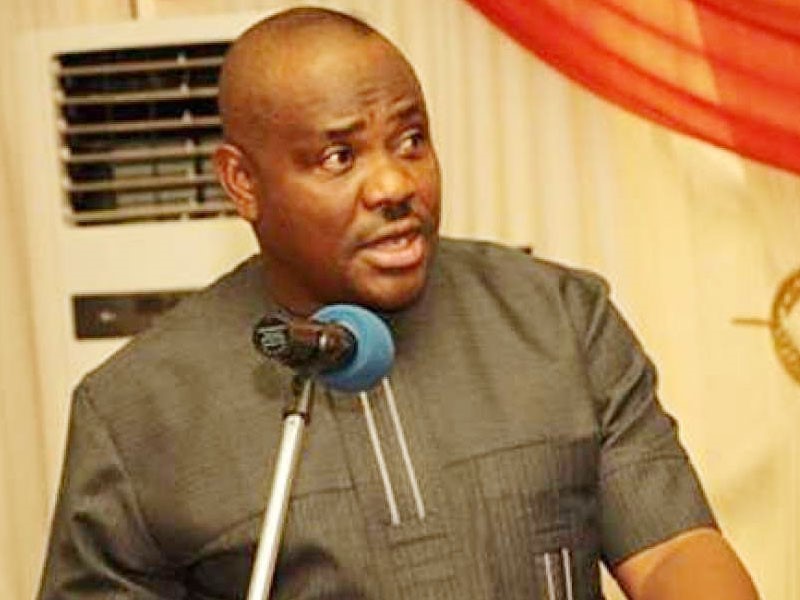Rivers States Governor Nyesom Wike has regretted that in the past six years, President Muhammadu Buhari’s administration has consistently told Nigerians that our economy is growing. He added Nigeria at 61 years after independence has become the highest indebted country in the world.
According to him, Nigeria has performed poorly in the last 61 years, stressing that it was time to quickly muster measures to rescue the country from the wrong direction it is headed.
Wike spoke at the March Pass and Parade event in commemoration of the 61st Independence of Nigeria that was held at Sharks Football Stadium, according to a statement by his Special Assistant on Media Kelvin Ebiri.
Wike recalled that the path to Nigeria’s independence was charted by patriotic, knowledgeable and compassionate leaders whose vision was to build a united, peaceful and prosperous black nation.
The Governor noted that in the last six years, from the year 2015, it is evident that most of the countries that started with Nigeria 61 years ago are far more advanced and developed with superlative standards of living for their people than Nigeria can boast of.
He opined that the nation’s democracy is weakened with constant violation of the constitution, and other institutions, noting that the National Assembly has abandoned its check and balance roles over the executive, while the judiciary has lost its courage, integrity, commitment to justice.
Wike said: “In the last six years, our economy has been in tatters and gasping without any realistic hopes for meaningful recovery in the nearest future.
“They, therefore, told lies when they say that our economy is growing and doing well when no one is feeling the benefits of an improving economy if any.
“Unable to mobilized sufficient domestic revenues, Nigeria is now one of the most indebted countries in the world, yet the Federal Government’s appetite for more loans remains high even as we are approaching the twilight of its tenure.
“The effect of this is to mortgage the progress and wellbeing of the future generation of Nigerians with billions of debts burden in hard currencies.”
He said if subsequent leaders had continued on that path, the nation would have actualised the dream of making Nigeria lead Africa stand shoulder to shoulder with the rest of the civilized world within the shortest possible period.
“At independence, we were at par and even better in resource endowments and potential for development with our contemporaries like Malaysia, Singapore and several other countries.
“At independence and even now we are a nation blessed with very hardworking and resourceful people.
“Our youths are some of the smartest people in the world, doing great exploits, flying our flag and making us proud across the world in music, dance, acting, culture, arts, sports, academics and our unique expressions and community ways of life.
“But at 61, it does not seem to me that there is anything worthy of our celebrating except, perhaps, the fact that we have remained independent and managed to struggle with our existence for all these years.”
According to Governor Wike, the worse happened to Nigeria with the military incursion and the country snapped and set itself on the reverse course because of the unpatriotic pressure and frustrations that were exerted.
He said democracy was dismantled as a result, and the federal system distorted with politically inspired balkanization that defined the country into inequitable and unviable and dependent states and local government areas.
The governor pointed out that the military also succeeded in creating so many fault lines and ocean of injustices, which have continued to blunt, hunt and debunk the basis of the nation’s existence as one indivisible country with one destiny.
“However, the restoration of democracy in 1999, after a protracted and bloody struggle and sacrifice, again, raised so much hope about the future of Nigeria and the aspirations of our people for a better deal from the government,” he added.
“With democracy, Nigerians expected the timeless values of the rule of law, judicial independence, inclusiveness, social justice, transparency and accountability to be the basis of governance and transformation.”



